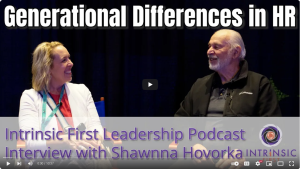Have you adjusted your interview questions and what you are looking for as remote working becomes more of your reality?
If you are communicating and working hard to keep your team engaged, hopefully not much has changed with your culture. If you are growing and need to hire additional team members, have you thought about areas of focus to ensure you keep your culture thriving and identify candidates who have the competencies to succeed, all while working remote or semi-remote for the foreseeable future. Below are a few examples to adapt common competencies and behaviors to the remote working world. Note that these questions relate to someone who has been working during the pandemic. If they have been laid off from their job, adjust the question to how they have approached their job search.
1. Communication: Ability to communicate is always a top priority, now that the majority of the workforce is remote, it is far more important than ever. Managers should develop a list of questions to fully understand a candidate’s communication skills, such as:
· Give me an example of a time when you went out of your way to ensure you communicated your point effectively.
· Tell me about a time when your communication skills failed you.
· Tell me about a time when you needed to communicate a problem you are encountering on the job? Who did you speak with? What did you do to follow-up? What additional clarification did you need and ask for? Was this in person, email, phone, or video?
· What is your default method of communication – Slack, email, phone, text, video? Ask for examples when they used each method – get specific, not just what they would do, what they have done.
· What are your expectations of your peers, team members and supervisor related to the method and how frequently you interact with them?
2. Motivation: How are remote workers staying motivated and focused with a myriad of distractions – kids at home with remote school, spouse or roommate home, dog barking to play fetch, household chores piling up and the outdoors calling us to go outside.
· As you have been working from home over the past months, tell me what you have learned about your work style. Look for specific examples related to what time of day they work best, do they need to be left alone to work or a balance of working alone and calls/zoom meetings.
· How have you stayed organized and met deadlines while you have been working from home. Do they find themselves working normal business hours, have they had to adjust to early mornings/late evenings, or pulling all-nighters to meet deadlines AND WHY are they pulling all-nighters?
3. Accountability: How do you know your new employee is going to perform and meet your expectations. Mistakes are going to happen, especially as a new hire is navigating a new position, new company, new culture, all while working remotely. A few questions to help you identify how they hold themselves accountable may include:
· Tell me about your last mistake and how you owned it. What happened?
· Give me an example of a lesson you learned from making a mistake. What have you done differently going forward?
· While working remote, what actions have you taken to ensure you follow through on commitments, meet deadlines and own any mistakes or step up to admit times you haven’t been as focused or committed to the team/organization as normally expected.
These are just three examples that help drive your culture. Identify what else is important for success in your organization and develop questions to dive deep into those factors. Ask follow-up questions and peel back the layers of the onion. As your organization and workforce adjusts to remote working 100% or even 50%, adapt your interview questions to challenges and expectations while working remote.





